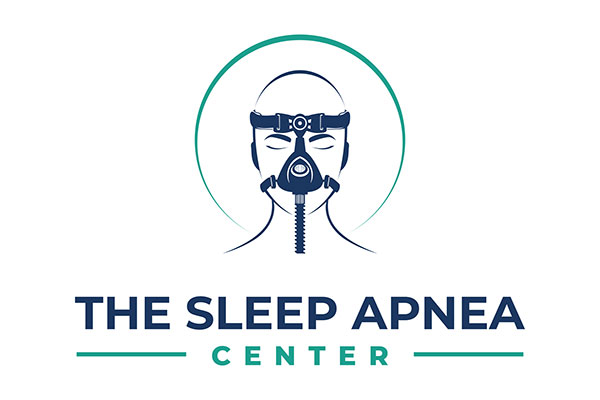Snoring SolutionsRockville, MD
Snoring, especially excessive, continuous snoring, can lead to adverse health conditions when left untreated. Many of us snore when we have had a long day or not slept well. However, if you or someone you know suffers from snoring daily, it may impact your sleep and overall wellness. Snoring solutions not only focus on decreasing snoring but also help patients learn to sleep and breathe better, enhancing general health and mood.
At The Sleep Apnea Center, we offer snoring solutions for patients with sleep conditions or disorders that cause snoring. Our dental sleep medicine team can help you get back to better, uninterrupted sleep. To learn more about a procedure or schedule an appointment, call 301-279-2600 today.
What Causes Snoring?
Not only is snoring disruptive to the sleeper and their partner, but it can also cause a variety of health and sleep-related problems. According to the Sleep Foundation, snoring affects about 57% of men and 40% of women in the United States and even occurs in up to 27% of children. While mild snoring can be unconcerning, excessive and ongoing snoring often suggests a possible severe underlying health issue.
Snoring is caused by the vibrations of the soft tissues in the back of the throat. When we sleep, our airways narrow. In some people, this causes the airways to constrict, making breathing difficult and causing the snoring sounds. Snoring can be the result of a dental or general health condition, such as TMJ disorder, sleep apnea, or a breathing disorder. Risk factors that contribute to a higher risk of snoring include:
- Alcohol consumption
- Chronic nasal congestion
- Deviated septum or nasal polyps
- Jaw that is small or set-back
- Large tonsils, tongue, or soft palate
- Obesity
- Pregnancy
- Use of sedative medications
"Snoring can be the result of a dental or general health condition, such as TMJ disorder, sleep apnea, or a breathing disorder."
Sleep Apnea and Other Sleep Disorders
A sleeping disorder refers to habits occurring during sleep that affect breathing and overall health. Breathing pattern disorders (BPD), or dysfunctional breathing, are chronic or recurring conditions that cause a distortion in sleep. Sleep apnea is often referred to as both a sleeping and breathing disorder since these two factors are affected.
Sleep apnea is a serious, life-threatening condition that can greatly reduce oxygen levels, accelerate the heart rate, and increase blood pressure. Oxygen and adequate sleep are essential for proper brain functioning. Therefore, combining low oxygen levels with obstructed sleep can affect multiple parts of the body, such as the muscles, mind, mood, and metabolism.
"Oxygen and adequate sleep are essential for proper brain functioning."
Snoring Solutions
Airways are often blocked or constricted due to a small jaw, tonsils that lay over the throat, a large tongue, or fat deposits in the back of the throat. Bruxism and TMJ affect the jaw due to constant grinding and clenching, which can affect normal breathing. Our team can properly examine a patient and determine whether they have sleep apnea, whether an oral condition is the cause, and what the treatment should be.
To properly diagnose the cause of a patient’s snoring, we may order imaging tests including X-rays, a computerized tomography scan, or magnetic resonance imaging to check the structure of their airway for problems, such as a deviated septum. We might also conduct a sleep study called a polysomnography, which observes a patient’s sleep overnight. Sleep studies record brain waves, blood oxygen level, heart rate, breathing rate, sleep stages, and eye and leg movements.
Upon diagnosis, we may offer a few recommendations. To begin, we may suggest certain lifestyle changes, such as losing weight, smoking cessation, avoiding alcohol before bed, treating nasal congestion, and avoiding sleep deprivation. Certain nasal sprays and alternative medicines may also help those without concrete health problems related to their snoring. Treatments for sleep apnea often remedy snoring and may include oral appliances, continuous positive airway pressure (CPAP) machines, upper airway surgery, and medication. We can discuss potential treatment options during diagnosis.
"Our team can properly examine a patient and determine whether they have sleep apnea, whether an oral condition is the cause, and what the treatment should be."
Managing Sleep Post-Treatment
Patients can implement various at-home practices to reduce snoring while seeking treatment. These include regular exercise, sleeping on one side, raising the head of the bed, using nasal strips, sprays, and external nasal dilators, limiting alcohol and sedatives, quitting smoking, and getting enough sleep. There are a variety of homeopathic therapies available since snoring is a common problem in adults worldwide. We can discuss these if a patient is interested.
Patients receiving treatment for a dental condition, such as TMJ, or general health condition, such as sleep apnea or a breathing disorder, often experience improved sleep and reduced snoring. It is important to keep practicing preventative measures, like those listed above or recommended by a doctor, to manage sleep and limit snoring. We also urge patients to continue visiting their primary care physician and dentist in order to keep their health up to par.
"There are a variety of homeopathic therapies available since snoring is a common problem in adults worldwide."
Questions Answered on This Page
Q. What are some causes behind snoring?
Schedule a Visit Today
Consultations and treatments for snoring are available at our office. Our sleep medicine dental team looks forward to treating you and helping you better manage your sleep. Call The Sleep Apnea Center at 301-279-2600 to learn more or schedule an appointment.
Frequently Asked Questions About Snoring Solutions
Q. How common is sleep apnea?
A. According to the Sleep Foundation, “Obstructive sleep apnea is estimated to affect between 10-30% of adults in the United States, but many cases are believed to go undiagnosed.” Since a person may go a long period of time without realizing that they have sleep apnea, many are unaccounted for.
Q. What common sleep and breathing disorders cause snoring?
A. Obstructive sleep apnea (OSA) is the most common sleep disorder, followed by central sleep apnea (CSA). Other common sleep disorders include sleep-related hypoventilation disorders, obesity hypoventilation syndrome (OHS), sleep-related hypoxemia disorder, and catathrenia.
Q. What are the possible complications of untreated sleep apnea?
A. Sleep apnea is a life-threatening condition as oxygen is a pertinent component of overall health, affecting nearly every organ. Going without treatment can result in hypertension, heart disease, fatigue, migraines, type 2 diabetes, metabolic syndrome, cardiovascular disease, memory problems, weight gain, and liver problems.
Q. What are the long-term effects of untreated snoring?
A. Going without treatment for a long period of time can have dire effects on the mind and body. Long-term effects of snoring include, but are not limited to, high blood pressure, stroke, heart failure, heart attacks, and irregular heartbeat. It is important to seek immediate help and treatment when first experiencing symptoms.
Q. How can I prevent snoring as I get older?
A. Snoring typically gets worse or begins as we get older. To combat this effect, patients should consider mouth exercises, wearing oral appliances, treating congestion or a blocked nose, and losing weight. We also recommend avoiding too many medications and sleep deprivation. Your primary care physician can also suggest lifestyle changes to prevent or reduce snoring.
Definition of Sleep Apnea Terminology
- Deviated septum.
- A condition where the nasal septum, the cartilage and bone dividing the nasal cavity, is displaced to one side, potentially causing breathing difficulties.
- Nasal polyp.
- A noncancerous, soft growth that forms on the lining of the nasal passages or sinuses, often as a result of chronic inflammation or infection, and can obstruct airflow.
- Sleep medicine dentist.
- A specialist that focuses on diagnosing and treating sleep-related breathing disorders.
- Sleep Foundation.
- A medical condition that exists in the background and may contribute to or exacerbate other health problems, often remaining undiagnosed or less noticeable until it influences overall well-being.
- Underlying health issue.
- A medical condition that exists in the background and may contribute to or exacerbate other health problems, often remaining undiagnosed or less noticeable until it influences overall well-being.
Contact Us
The Sleep Apnea Center is located at
350 Fortune Terrace #101B
Rockville,
MD 20854

